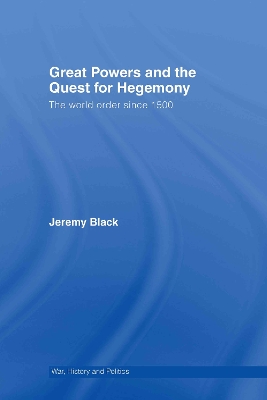War, History and Politics
1 primary work • 2 total works
Book 1
This timely book provides a general overview of Great Power politics and world order from 1500 to the present. Jeremy Black provides several historical case-studies, each of which throws light on both the power in question and the international system of the period, and how it had developed from the preceding period.
The point of departure for this book is Paul Kennedy’s 1988 masterpiece, The Rise and Fall of the Great Powers. That iconic book, with its enviable mastery of the sources and its skilful integration of political, military and economic history, was a great success when it appeared and has justifiably remained important since. Written during the Cold War, however, Kennedy’s study was very much of its time in its consideration of the great powers in ‘Western’ terms, and its emphasis on economics. This book brings together strategic studies, international relations, military history and geopolitics to answer some of the contemporary questions left open by Professor Kennedy's great work, and also looks to the future of great power relations and of US hegemony.
Great Powers and the Quest for Hegemony will be of great interest to students of international relations, strategic studies and international history.

